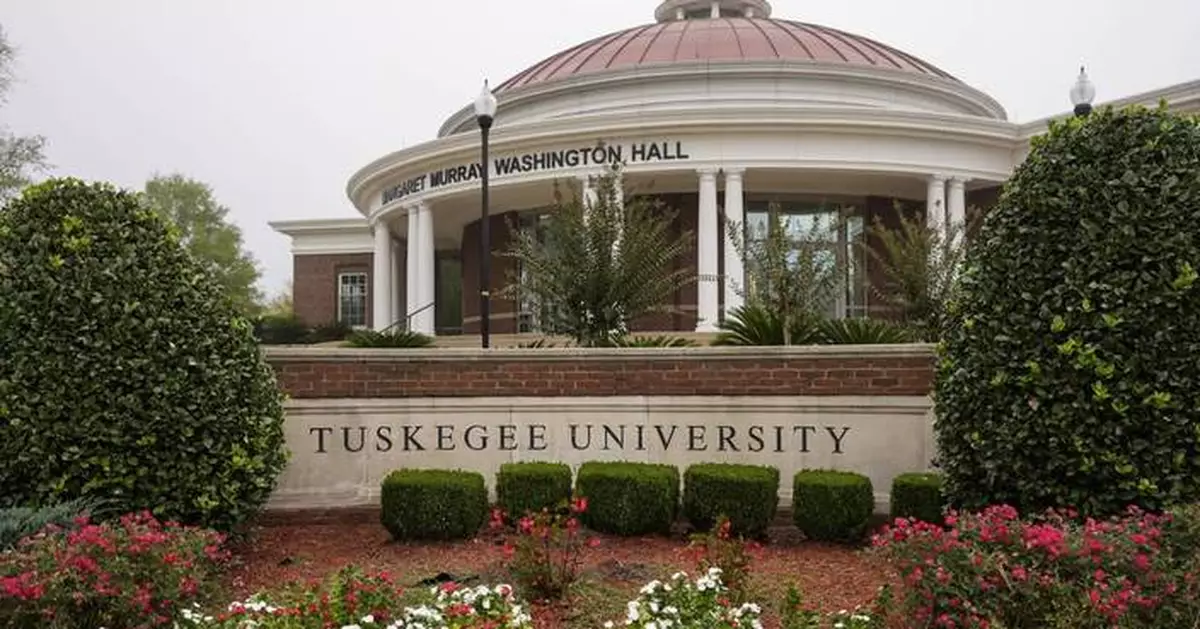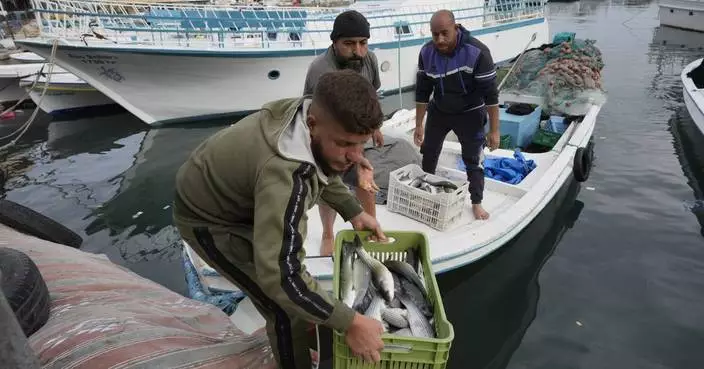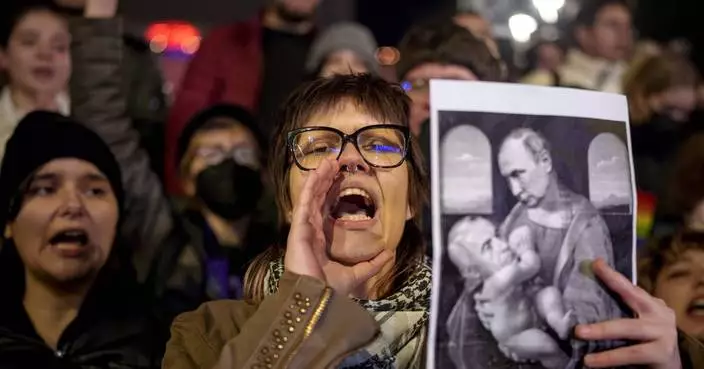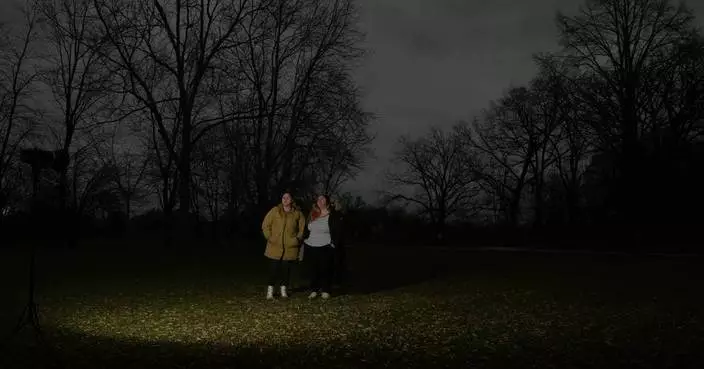A man accused of having a machine gun at Tuskegee University during a hail of gunfire that left one man dead and at least 16 others hurt told a federal agent that he fired his weapon during the shooting, but denied aiming at anyone.
The new details are contained in a newly unsealed federal complaint that describes how one officer ran toward the gunfire. That officer found a dead body, and then saw Jaquez Myrick with a Glock pistol, the complaint states.
Myrick was later questioned by state and federal agents, who asked him whether he discharged his firearm during the shooting.
“Myrick then confessed to discharging the Glock but denied shooting at anyone,” a special agent with the Bureau of Alcohol, Tobacco, Firearms and Explosives, who took part in the interview, wrote in the complaint.
Myrick, 25, of Montgomery, is accused of having a weapon with a machine gun conversion device and faces a federal charge of possession of a machine gun. The complaint does not accuse him of shooting anyone. No attorneys who could speak on Myrick's behalf are listed in the federal court documents, and it was unclear from jail records whether he has one.
The complaint also details the chaotic scene and how Myrick was apprehended.
A Tuskegee police officer, one of the first to respond to reports of gunshots on the campus, heard the gunfire immediately but wasn’t able to drive his patrol car through a parking lot because it was so jammed with people and cars, according to the court records.
Officer Alan Ashley then left his car and ran toward the gunfire, soon finding a man dead from a gunshot wound, according to the complaint. Ashley then saw Myrick, armed with a Glock pistol, and took him into custody, the complaint states.
The city officer also gave the gun to the special agent who wrote the complaint.
“During a field examination, I found the pistol to function as a machine gun,” the federal agent wrote.
Myrick told the agents he had come from his home in Montgomery to the Tuskegee campus “looking for a party” and was with some friends when the shooting started.
He said he purchased the Glock from a pawn shop in Tampa, Florida, and then purchased a machine gun conversion device from a seller he met through the online site Discord, the complaint states. Myrick said he had the package delivered to a vacant residence, and installed the device on his pistol.
The shooting came as the school's 100th homecoming week was winding down. A dozen of the victims were hit by gunfire, with the others injured as they tried to escape the chaotic scene, authorities said. Many of the injured were students.
The man killed was identified as 18-year-old La’Tavion Johnson, of Troy, Alabama, who was not a student, the local coroner said.
The FBI joined the investigation and said it was seeking tips from the public, as well as any video witnesses might have. It set up a site online for people to upload video.
The shooting is the latest case in which a “machine gun conversion device” was found, something law officers around the nation have expressed grave concerns about. The proliferation of these types of weapons is made possible by small pieces of metal or plastic made with a 3D printer or ordered online.
Guns with conversion devices have been used in several mass shootings, including one that left four dead at a Sweet Sixteen party in Alabama last year and another that left six people dead at a bar district in Sacramento, California.
“It takes two or three seconds to put in some of these devices into a firearm to make that firearm into a machine gun instantly,” Steve Dettelbach, director of the Bureau of Alcohol, Tobacco, Firearms and Explosives, said in AP’s report on the weapons earlier this year.
The shooting left the entire university community shaken, said Amare’ Hardee, a senior from Tallahassee, Florida, who is president of the student government association.
“This senseless act of violence has touched each of us, whether directly or indirectly,” he said at the school’s homecoming convocation Sunday morning.
Sunday’s shooting comes just over a year after four people were injured in a shooting at a Tuskegee University student housing complex. Two visitors to the campus were shot and two students were hurt while trying to leave the scene of what campus officials described as an “unauthorized party” in September 2023, the Montgomery Advertiser reported.
About 3,000 students are enrolled at the university about 40 miles (64 kilometers) east of Alabama’s capital city of Montgomery.
The university was the first historically Black college to be designated a Registered National Landmark in 1966. It was also designated a National Historic Site in 1974, according to the school’s website.

Homecoming parade floats sit on the campus of Tuskegee University a day after a shooting occurred, Monday, Nov. 11, 2024, in Tuskegee, Ala. (AP Photo/Mike Stewart)
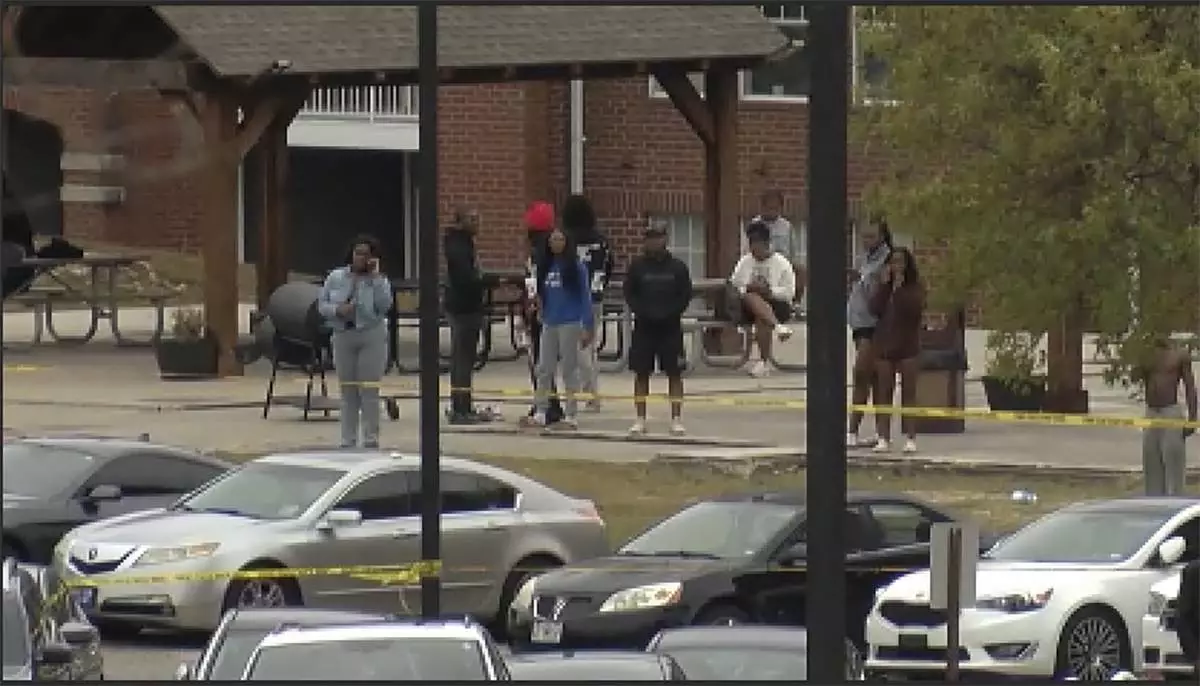
This image taken from video provided by WSFA shows people standing near the scene of an earlier shooting at Tuskegee University, Sunday, Nov. 10, 2024, in Tuskegee, Ala. (WSFA via AP)
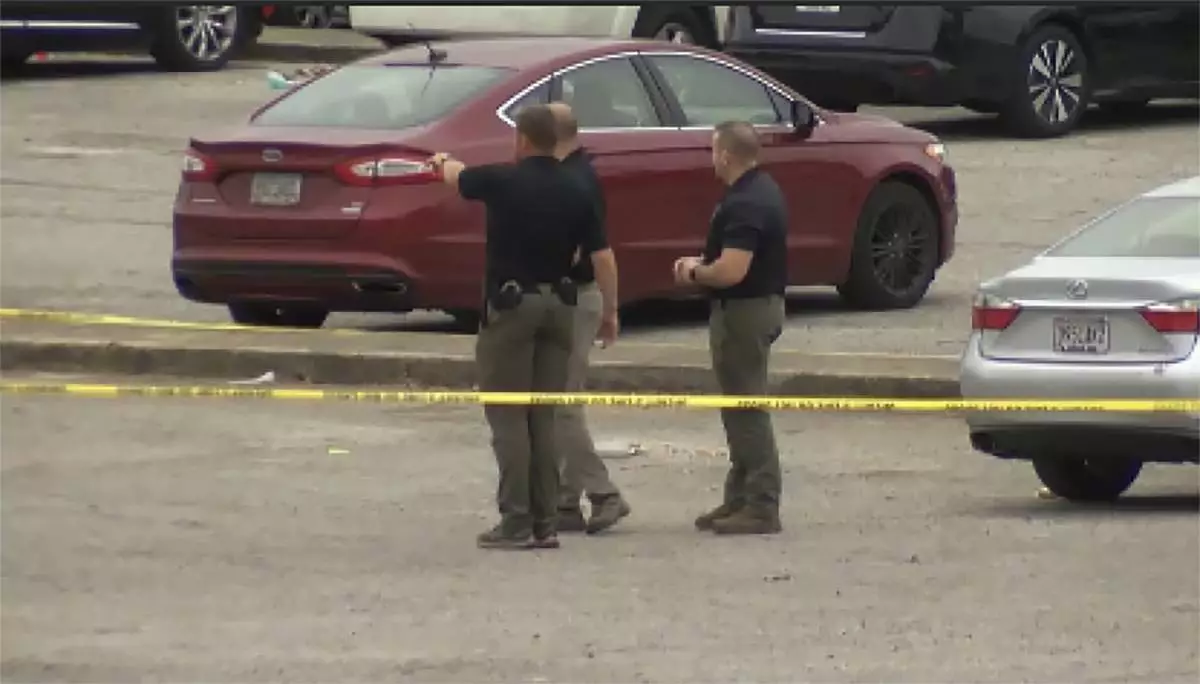
This image taken from video provided by WSFA shows law enforcement at the scene of a shooting at Tuskegee University, Sunday, Nov. 10, 2024, in Tuskegee, Ala. (WSFA via AP)
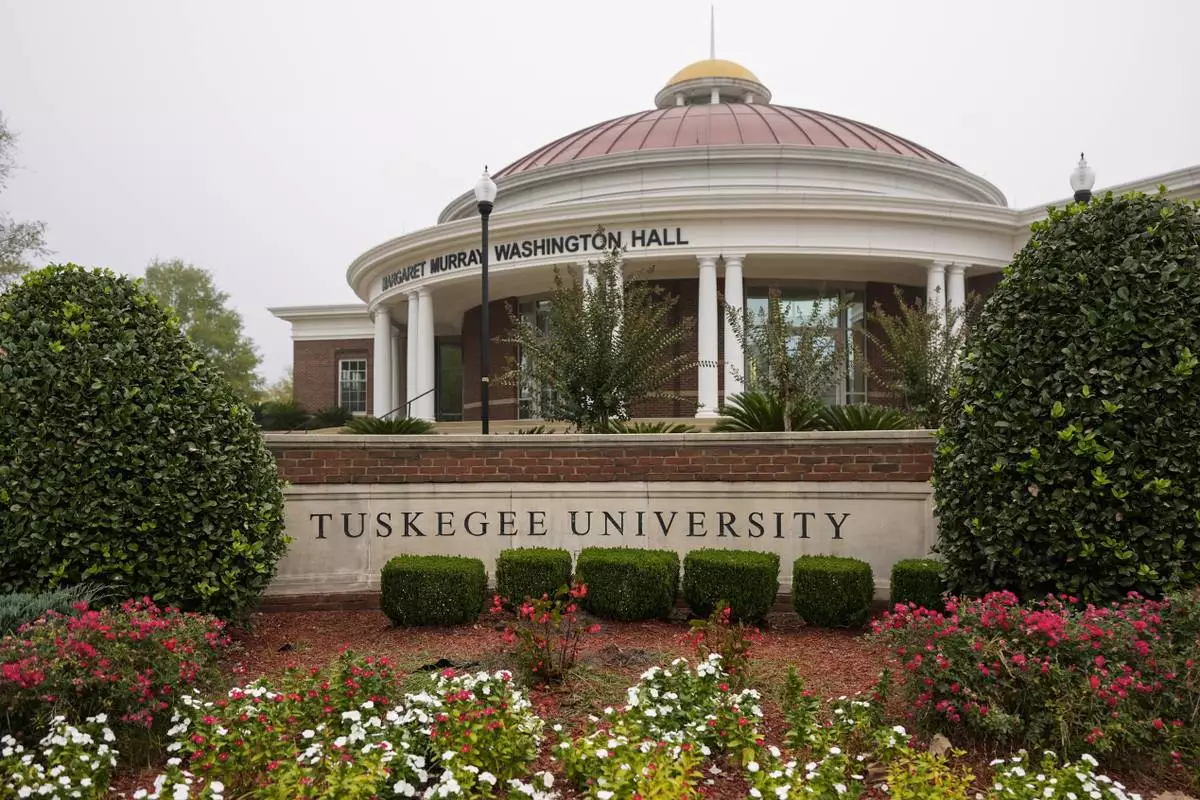
The entrance to Tuskegee University is seen, Monday, Nov. 11, 2024, in Tuskegee, Ala. (AP Photo/Mike Stewart)
CHRISTCHURCH, New Zealand (AP) — Kane Williamson completed his second half century of the match and passed 9,000 test runs Saturday as he led New Zealand's faltering resistance to England's control on the third day of the first test.
Williamson followed his first innings 93 with 61 and was one of five batsmen to fall before New Zealand erased England's 151-run first innings lead.
At stumps, New Zealand was 155-6, four runs ahead and with only bowlers yet to bat. Daryl Mitchell was 31 not out and Nathan Smith was on one. Brydon Carse had 3-22 and seven wickets for the match.
England applied ‘Bazball’ principles to take charge of the match almost from the resumption Saturday, dashing past New Zealand's first innings of 348 and building a commanding first innings lead at almost six runs per over.
Harry Brook resumed at 132 and went on to 171 in a 159-run partnership with Ben Stokes who was 37 not out overnight and finished with 80.
Dashing late contributions from Gus Atkinson who made 48 from 26 balls and Carse who made 33 from 24 with three monstrous sixes piled more pain on New Zealand late in its innings as it made 499 all out.
In total, England added 180 runs in 33 overs Saturday at a tempo set by Brook who posted his seventh century and third-highest score in tests and Stokes who reached his 35th half century from 105 balls, then added his next 30 runs from 41 deliveries.
New Zealand then lost both openers, Tom Latham (1) and Devon Conway (8), with only 23 runs on the board and Rachin Ravindra (24) with 46 runs still needed to erase England's lead. Ravindra continues to show enormous promise but was out to rash shots in both innings.
Williamson provided an example of application to the rest of the New Zealand top order, continuing in his usual unflappable manner even after he was struck on the helmet by Stokes when on 26.
In contrast, Ravindra was lured into an unnecessary shot at a short ball by Carse, knowing that the trap had been set and was sprung when he was caught in the deep by Jacob Bethell.
Williamson passed 9,000 test runs in his 103rd test at an average of 54 when he reached 26. He went on to a half century from 74 balls when New Zealand was 117-3.
He was out with the total at 133-4, trapped lbw by Chris Woakes, and wicketkeeper Tom Blundell was caught behind next ball as New Zealand slumped to 133-5, still 18 runs behind England.
Mitchell and Phillips finally erased the England lead in the 45th over, 20 minutes before stumps. But Phillips fell for 19 shortly before the close of play when New Zealand was 153-6, its lead only two runs and with only the bowlers to come.
Earlier, Brook was helped again Saturday by New Zealand's poor catching. He was dropped for the fifth time in his innings, by Glenn Phillips at gully from the bowling of Will O'Rourke, when he was 132.
Brook was dropped four times on the second day: on 18 by Phillips in the gully, on 41 by Tom Latham at first slip, on 70 by Devon Conway in the deep and on 112 by wicketkeeper Tom Blundell off Matt Henry.
He was finally out, caught by Blundell from the bowling of Matt Henry, in the sixth over of the second new ball when England was 381-6. Brooks had come to the crease when England was 45-3 before lunch on day two.
He turned around England's innings in a 151-run partnership with Ollie Pope (77) and led his team into a dominant position with Stokes.
AP cricket: https://apnews.com/hub/cricket

England's Brydon Carse bats during play on the third day of the first cricket test between England and New Zealand at Hagley Oval in Christchurch, New Zealand, Saturday, Nov. 30, 2024.(John Davidson/Photosport via AP)

New Zealand's Tom Latham reacts after he was dismissed by England's Chris Woakes, second right, during play on the third day of the first cricket test between England and New Zealand at Hagley Oval in Christchurch, New Zealand, Saturday, Nov. 30, 2024. (Andrew Cornaga/Photosport via AP)

Gus Atkinson of England reacts after taking a catch to dismiss New Zealand's Devon Conway during play on the third day of the first cricket test between England and New Zealand at Hagley Oval in Christchurch, New Zealand, Saturday, Nov. 30, 2024.(John Davidson/Photosport via AP)

New Zealand's Kane Williamson kicks at the ball during play on the third day of the first cricket test between England and New Zealand at Hagley Oval in Christchurch, New Zealand, Saturday, Nov. 30, 2024. (Andrew Cornaga/Photosport via AP)

New Zealand's Daryl Mitchell bats during play on the third day of the first cricket test between England and New Zealand at Hagley Oval in Christchurch, New Zealand, Saturday, Nov. 30, 2024. (Andrew Cornaga/Photosport via AP)

Gus Atkinson of England takes a catch to dismiss New Zealand's Devon Conway, left, during play on the third day of the first cricket test between England and New Zealand at Hagley Oval in Christchurch, New Zealand, Saturday, Nov. 30, 2024.(John Davidson/Photosport via AP)

England bowler Chris Woakes, second left, celebrates with teammates after taking the wicket of New Zealand's Kane Williamson during play on the third day of the first cricket test between England and New Zealand at Hagley Oval in Christchurch, New Zealand, Saturday, Nov. 30, 2024. (Andrew Cornaga/Photosport via AP)

New Zealand's Kane Williamson bats during play on the third day of the first cricket test between England and New Zealand at Hagley Oval in Christchurch, New Zealand, Saturday, Nov. 30, 2024. (Andrew Cornaga/Photosport via AP)

England bowler Chris Woakes runs down the wicket as he celebrates the dismissal of New Zealand batsman Tom Blundell, right, during play on the third day of the first cricket test between England and New Zealand at Hagley Oval in Christchurch, New Zealand, Saturday, Nov. 30, 2024. (Andrew Cornaga/Photosport via AP)

England's Ben Stokes bats during play on the third day of the first cricket test between England and New Zealand at Hagley Oval in Christchurch, New Zealand, Saturday, Nov. 30, 2024. (Andrew Cornaga/Photosport via AP)

England's Ben Stokes bats during play on the third day of the first cricket test between England and New Zealand at Hagley Oval in Christchurch, New Zealand, Saturday, Nov. 30, 2024. (Andrew Cornaga/Photosport via AP)

England's Ben Stokes dives to to make his ground during play on the third day of the first cricket test between England and New Zealand at Hagley Oval in Christchurch, New Zealand, Saturday, Nov. 30, 2024. (Chris Symes/Photosport via AP)

England's Harry Brook reacts after scoring a 150 runs during play on the third day of the first cricket test between England and New Zealand at Hagley Oval in Christchurch, New Zealand, Saturday, Nov. 30, 2024. (Andrew Cornaga/Photosport via AP)

England's Harry Brook hits a six during play on the third day of the first cricket test between England and New Zealand at Hagley Oval in Christchurch, New Zealand, Saturday, Nov. 30, 2024. (Andrew Cornaga/Photosport via AP)

England's Harry Brook, right, and teammate Ben Stokes run between the wickets during play on the third day of the first cricket test between England and New Zealand at Hagley Oval in Christchurch, New Zealand, Saturday, Nov. 30, 2024.(John Davidson/Photosport via AP)

England's Harry Brook bats during play on the third day of the first cricket test between England and New Zealand at Hagley Oval in Christchurch, New Zealand, Saturday, Nov. 30, 2024.(John Davidson/Photosport via AP)

England's Harry Brook reacts as he leaves the field after he was dismissed for 171 runs during play on the third day of the first cricket test between England and New Zealand at Hagley Oval in Christchurch, New Zealand, Saturday, Nov. 30, 2024.(John Davidson/Photosport via AP)

England's Harry Brook gestures to the crowd as he leaves the field after he was dismissed for a 171 runs during play on the third day of the first cricket test between England and New Zealand at Hagley Oval in Christchurch, New Zealand, Saturday, Nov. 30, 2024. (Andrew Cornaga/Photosport via AP)

England's Ben Stokes bats during play on the third day of the first cricket test between England and New Zealand at Hagley Oval in Christchurch, New Zealand, Saturday, Nov. 30, 2024.(John Davidson/Photosport via AP)






